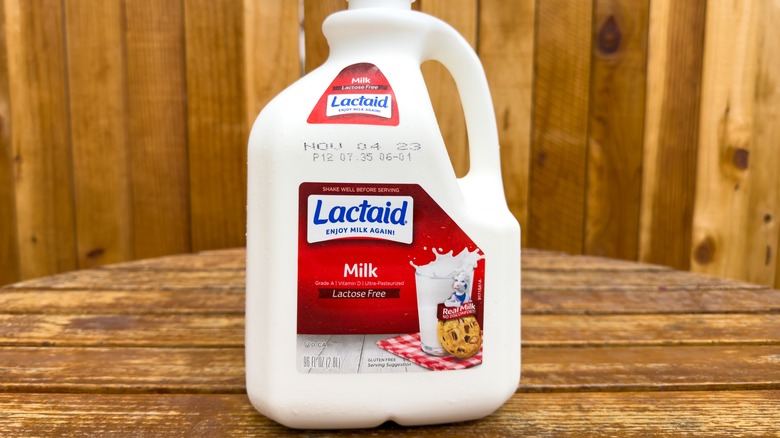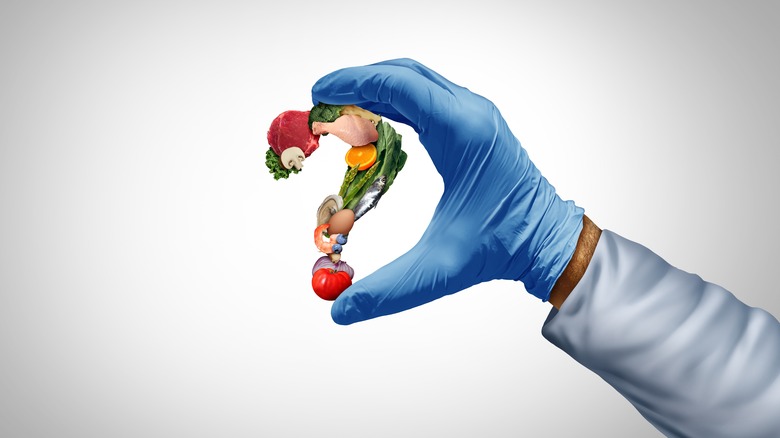Why Lactaid Is Being Recalled In More Than Half Of The Country
Food recalls happen for a number of reasons, and the FDA classifies recalls based on their severity. A recalled food item can pose a risk to the general public, such as the recent recall of cinnamon due to lead contamination, or it can be more specifically dangerous to a select group of people. It's the latter that's at play with the most recent recall of Lactaid's 96-ounce milk products, as some of them may have been contaminated with almonds. That may not be a big deal for most people, but it can be incredibly dangerous for anyone with a serious tree nut allergy who won't be suspecting it in their milk.
The announcement was issued on September 19, 2024 and affects more than two dozen different states. If you have a 96-ounce bottle of Lactaid in your fridge, you can and should check the official announcement to see if your area is affected and if the particular batch that you own is involved. The potential for almond contamination was identified during a routine maintenance program. If you discover that you do own a Lactaid product that's being recalled and would like to return it, you can bring it back to the store you bought it from, where it will be refunded. If you aren't allergic to almonds, then the risk to your health is quite low (though you should check with a medical professional if you are unsure).
What happens to recalled food?
The announcement doesn't specify what exactly happened to initiate the recall. Many food manufacturing facilities produce different products, so it's possible that the machinery wasn't properly cleaned after another food item that contains almonds (such as almond milk) was run through the system; this is purely speculative, mind you. Unlike almond milk, the difference between dairy-free milk and lactose-free milk (like Lactaid) is that Lactaid does contain dairy — it's just the lactose that's removed.
If you discover that your Lactaid milk is affected and you do return it, the company will likely destroy it. There are some instances where food that has been recalled can be sold to third parties, who then capitalize on the cheaper price to create new food products after mitigating the risk of the initial recall. Food infected with a disease, for example, can sometimes be processed in such a way that the bacteria or virus is destroyed; making it safe for consumption.
Whether that will happen with this particular recall is unknown. The FDA and the companies involved don't typically make a habit of publicly stating what happens on the back end of a recall like this one. Not that it should matter in your decision-making process. Certainly, if you have a tree nut allergy or some other condition that makes the consumption of almonds unsafe, definitely double check that your milk is okay to drink.

